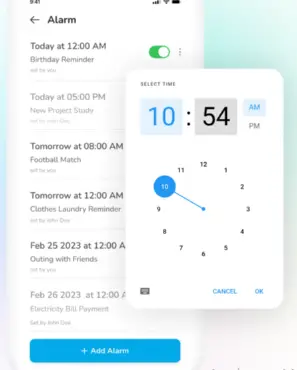In the realm of developmental disabilities, mental health is a critical aspect that requires dedicated attention and support. The Developmental Disabilities Administration (DDA) plays a pivotal role in creating safe spaces for individuals with developmental disabilities to address their mental health needs. This blog explores the efforts made by the DDA in providing mental health support, emphasizing the significance of fostering emotional well-being within this community.
Section 1: The Intersection of Developmental Disabilities and Mental Health
1.1 Recognizing the Mental Health Challenges
- Understanding the unique mental health challenges faced by individuals with developmental disabilities
- Breaking down stigmas and misconceptions surrounding mental health in this community
1.2 The Need for Comprehensive Support
- Highlighting the importance of holistic support that addresses both developmental and mental health needs
- The impact of mental health on overall quality of life
Section 2: DDA Initiatives for Mental Health Support
2.1 Integrated Care Models
- Implementing integrated care approaches that consider both physical and mental health
- Collaborating with healthcare professionals, therapists, and support staff
2.2 Accessible Counseling Services
- Providing accessible and culturally sensitive counseling services
- Offering individual and family counseling to address diverse mental health needs
Section 3: Mental Health Education and Awareness
3.1 Training Programs for Caregivers
- Equipping caregivers, educators, and support staff with the tools to recognize and address mental health concerns
- Creating a knowledgeable and empathetic support network
3.2 Community Workshops and Seminars
- Conducting workshops and seminars to raise awareness about mental health in the developmental disabilities community
- Promoting understanding and fostering a supportive community
Section 4: Crisis Intervention and Prevention
4.1 Developing Crisis Intervention Plans
- Establishing protocols for identifying and addressing mental health crises
- Collaborating with emergency services for timely and appropriate responses
4.2 Implementing Preventive Measures
- The role of proactive mental health strategies in preventing crises
- Addressing triggers and stressors through personalized plans
Section 5: Fostering a Supportive Environment
5.1 Peer Support Networks
- Creating opportunities for individuals with developmental disabilities to connect with peers facing similar challenges
- Encouraging a sense of community and shared understanding
5.2 Inclusive Recreational and Therapeutic Activities
- Incorporating recreational and therapeutic activities that promote mental well-being
- Collaborating with community organizations to expand opportunities
see more:-

